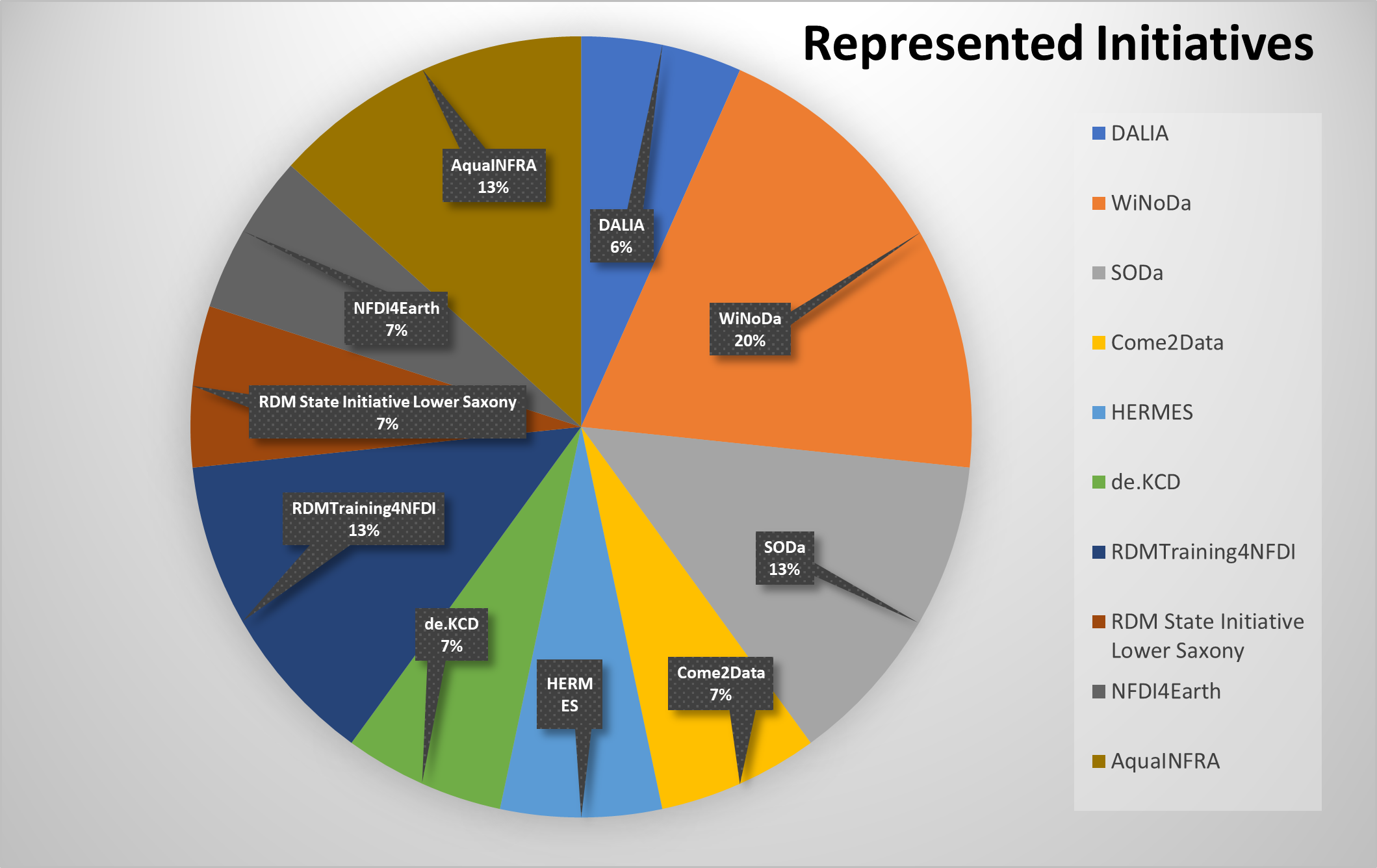
Our lab is growing! In our Three Questions series, we’re profiling each of our members and the amazing work they’re doing.

Our lab is growing! In our Three Questions series, we’re profiling each of our members and the amazing work they’re doing.
Das Open Research Office Berlin (angesiedelt an der Universitätsbibliothek der FU Berlin) und die Universitätsbibliothek der TU Berlin laden herzlich ein zum zweiten Workshop des Projekts „Recht offen. Juristische Kompetenzen in und für die Offene Wissenschaft stärken“! Der Workshop dient der Vorbereitung des Legal Helpdesk für Berlins Wissenschafts- und Kulturerbe-Einrichtungen.

Note: After I wrote this post last week, the Tidyverse team released ragnar 0.2.0 on July 12. Everything here should still work, but take a look at the release notes to learn about some nice new features that aren’t covered here. I’ve written a little about retrieval-augmented generation (RAG) here before.

June 26, the WiNoDa and DALIA teams hosted a dynamic three‑hour online workshop on “Mapping learning resources and identifying gaps in data competence portfolios.” We brought together participants from data competence centers (DKZs), NFDI consortia (such as DALIA and RDMT), regional RDM projects, and domain experts to share, map, and strategize on how we deliver data competence training across initiatives.

Ende Juni veranstalteten die Teams von WiNoDa und DALIA einen dynamischen, dreistündigen Online-Workshop zum Thema „ Mapping von Lernressourcen und Identifizierung von Lücken in Datenkompetenzportfolios “. Wir brachten Teilnehmende aus Datenkompetenzzentren (DKZs), NFDI-Konsortien (wie DALIA und RDMT), regionalen FDM-Projekten und Expertinnen zusammen, um sich auszutauschen, zu kartieren und Strategien dahingehend zu entwickeln,

With support from DataCite’s Global Access Fund (GAF) in 2024, Eko-Konnect Research and Education Initiative launched a pilot project aimed at enhancing the digital preservation of Nigerian cultural artefacts and expanding the use of persistent identifiers (PIDs) in the country’s research and heritage sectors.

Six years ago, during a science communication session at a conference, we were given the task to explain “why we do what we do” to people unfamiliar with our research. While having this chat with a fellow postdoc, I told him I’m curious about how the human body works, and that is why I became a scientist.
por Matilde Souto Mantecón De la trinchera al sartén. Recetario del exilio español en México es más que una colección de recetas. Es un libro que nos adentra a una faceta íntima y poco conocida de un exilio que ha sido muy estudiado.

In the first part of this series, I covered EBSCOhost’s new Natural Language Search (NLS) which uses a Large Language Model (LLM) to expand a user's input query to a Boolean Search Query and used to run over the conventional search system. In this article, I will focus on Web of Science’s Smart Search first launched in April 2025. Similar to the offering from EBSCOhost, this is bundled with your product at no additional cost.
[Media Release by University of Otago] This blog cross-posts a University of Otago media release about our recent research: Many former leaders of the world’s nine nuclear-armed nations were impaired by health conditions while in office, raising concerns over their decision-making abilities while they had access to nuclear weapon launch codes, a study from the University of Otago, New Zealand, has found.

I recently attended a workshop on research funding and what can be done to improve public funding of research. In this blog post, I share why I consider the political dynamics of research funding an increasingly important lens in understanding the influence of research funding on research itself. In its most basic form, research funding is a tool used for a variety of purposes.